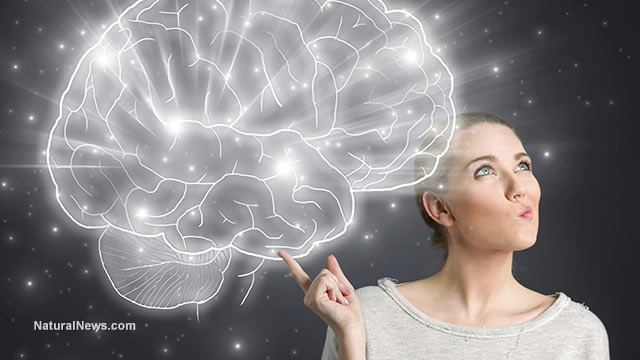Your motivation could be influenced by chronic inflammation, study says
02/24/2020 / By Darnel Fernandez

People often experience days where they lack the motivation to get up and go to wherever they need to be. While this mopey, listless feeling can strike at any moment, those with chronic, low-grade inflammation are more likely to experience the sudden onset of the blues.
A study published in the journal Trends in Cognitive Science found that chronic, low-grade inflammation affects the brain’s dopamine system, which is responsible for motivation. Their findings revealed that there is an association between dopamine, motivation and the inflammatory response as part of the healing process, which allowed the researchers to develop a theoretical framework derived from a computational method to test their theories.
“When your body is fighting an infection or healing a wound, your brain needs a mechanism to recalibrate your motivation to do other things so you don’t use up too much of your energy,” says corresponding author Michael Treadway. “We now have strong evidence suggesting that the immune system disrupts the dopamine system to help the brain perform this recalibration.”
The link between chronic inflammation and motivation
Previous research has established that inflammatory cytokines — signaling molecules used by the immune system — leave a lasting impact on the dopamine system. As more research is done on these cytokines, more insights are revealed on how immune cells shift their metabolic states differently from other types of cells. In this study, researchers from Emory University expanded on these findings to develop their own theoretical framework. (Related: Chronic inflammation: the causes and solutions.)
The research team theorized that an immune-system mechanism was used to help regulate the use of energy during times of stress. This so-called system was adaptive to the ancestral environments which were rife with dangerous pathogens and predators. However, nowadays people do not often come face-to-face with the problems of the past and are significantly less physically active. Modern humans are also more likely to have low-grade inflammation due to several factors like chronic stress, aging, obesity and metabolic syndrome. The researchers noted that, under these conditions, the same immune-system mechanism could become maladaptive instead — meaning that the trait is more harmful than helpful.
Using their newly-developed computational method, the researchers will allow fellow scientists to measure the effects of chronic inflammation on energy and effort-based decision making. Their method could potentially unveil insights that could explain how chronic inflammation contributes to motivational impairments in cases of depression, schizophrenia and other mental disorders.
“If our theory is correct, then it could have a tremendous impact on treating cases of depression and other behavioral disorders that may be driven by inflammation,” Andrew Miller, co-author of the study, said. “It would open up opportunities for the development of therapies that target energy utilization by immune cells, which would be something completely new in our field.”
All in all, their findings presented evidence that there is an association between an elevated immune system, reduced levels of dopamine and motivation and some diagnoses of depression, schizophrenia and other mental disorders. However, the researchers noted that they are not proposing that inflammation is responsible for causing these disorders. Instead, they claim that there is a subset of people with these disorders that are sensitive to the effects of the immune system. This sensitivity could be the reason why they are experiencing motivational impairments. According to the researchers, their next step is to use their computational method to test their theory in a clinical trial about depression.
While inflammation can act as the body’s defense mechanism against harmful stimuli, it can also bring negative health effects if it becomes chronic. Learn more about how inflammation influences brain health at MindBodyScience.news.
Sources include:
Tagged Under: brain health, chronic inflammation, cognitive health, depression, healing, inflammation, inflammatory cytokines, mental health, Motivation, motivational impairments, procrastination, schizophrenia, treatments
RECENT NEWS & ARTICLES
BrainFunction.News is a fact-based public education website published by Brain Function News Features, LLC.
All content copyright © 2018 by Brain Function News Features, LLC.
Contact Us with Tips or Corrections
All trademarks, registered trademarks and servicemarks mentioned on this site are the property of their respective owners.


















